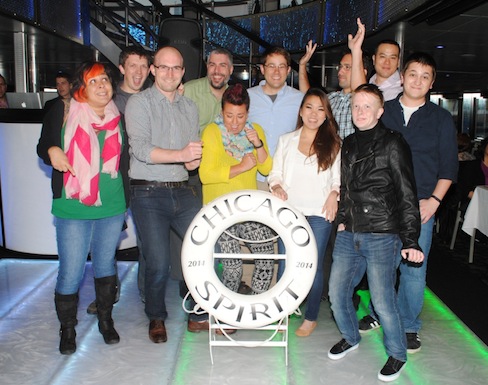In many ways, work is getting increasingly solitary.
We’re rejecting meetings with colleagues as inefficient time-wasters where nothing gets done. Technology is mediating communication, replacing face-to-face interaction. Remote work means that we’re often physically alone even when we’re working on a team.
The upshot is that even when we’re working together with colleagues on a team, it can feel like we’re working alone. Yet social contexts can be powerful motivators at work. Without them, we can get disengaged and feel like our work doesn’t matter.
It turns out that, even in the absence of working physically together with a team, it’s possible to evoke the power of social context with one single word. Stanford psychologists discovered that saying this one word inspired individuals to work an incredible 48% harder by using social context to fuel intrinsic motivation.
Cues that Signal Social Context
Researchers Priyanka Carr and Gregory Walton put each study participant in a separate room so that they were physically alone.
The researched told half of the participants — those in the “psychologically together” group — that the study was about “‘how people work on puzzles together’ and that they ‘and the other participants here today’ would ‘each’ work on ‘a puzzle called the map puzzle.'” For the “psychologically alone” group, the conditions were the same except that the researchers made no mention of working “together” and the other participants.
Remember: each participant was alone, and the only thing that distinguished the two groups was whether they were made to feel psychologically together or alone.
The results were stunning and may change the way that you manage your team. The psychologically together group “worked 48% longer, solved more problems correctly, and had better recall for what they had seen.”
But that’s not what was most surprising. Psychologically together participants didn’t work harder because they “didn’t want to let other people down,” they reported that they did it because they found it interesting. Plus, participants actually felt less tired after working longer in the psychologically together group.
They weren’t motivated by peer pressure, which can often be negative and feel tiring. They were motivated intrinsically to do a great job.
Together is a Culture
No doubt, the word “together” is powerful, but it has to be more than just a new managerial catchphrase. It has to be backed by a culture that supports togetherness, or else it’ll ring hollow.

For a remote team like WooThemes, that means an annual get together for the whole team of meeting and socializing to cement a sense of cohesion. As Mark Forrester, co-founder of WooThemes, told us, “Even though we’re all over the place, we like everyone to feel like they’re a part of a small team.”
WooThemes uses apps like iDoneThis to reinforce the sense that you’re in the same room, around a table, making progress towards shared goals.
As our work trends towards being physically alone, it’s even more important to be cognizant of how you’re fostering a sense of togetherness with your words, your actions and the culture you build. If you are, you’ll tap into a powerful source of motivation that’ll drive a deep sense of productivity and satisfaction in your team.
Photo: Antoine Gady; Patrick Rauland (WooTrip)

